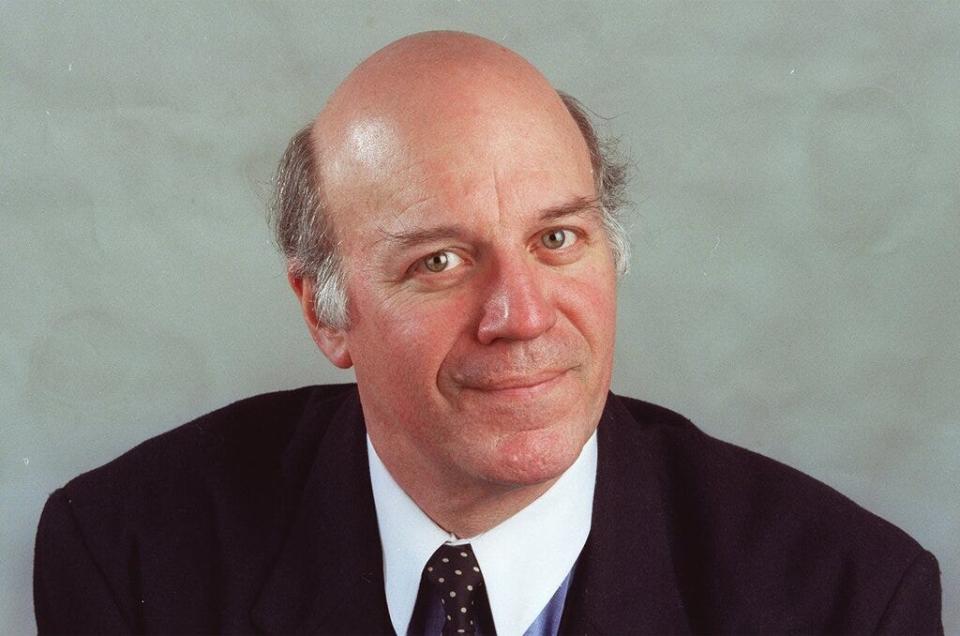Opinion: Years ago, at a Hyannis abortion clinic, looking for a sign
More than 30 years ago, we had an abortion clinic in Hyannis. Inside, there were doctors. Outside, there were clients. There were also protesters who held up graphic signs and alternately pleaded with the clients — or cursed them.
And there were escorts who were there to shield the clients from the worst of the abuse and walk them safely into the building. My story begins and ends with one of these people.
Now let me tell my story differently.
As previously said, there were several kinds of people present. There were pregnant women arriving determined to murder the tiny souls they carried within their bodies. There were doctors inside who were – hard to believe – ready to do it. There were protesters on the property who had seconds to persuade these pregnant women not to do this thing. And there were these “escorts” who had no skin in the game, no fees to expect, who were there to shield the pregnant women from any chance to be saved — and to save the child within them.

Those are our two narratives.
For half a century, these two groups have continued to oppose and dismay each other.
One side insists no woman should be forced to bear a child against her will. In this argument, either a woman’s body belongs to her — or it doesn’t. For most of history, it hasn’t. Women have been forced into marriages. They’ve been raped, especially by powerful males, with near impunity. You might be shocked to know how many women have — as have veterans from combat — stories of pain, defeat, or being over-run by forces more powerful than their own.
If you’re a woman, you likely know there’s a vast sorority of suffering among your sisters. Seen from this perspective, the abortion issue is but one facet of a complex prism — and people who are used to seeing through this prism know that while the light comes into the prism one way, it exits changed, broken down into its parts.
There is a special animus against people who insist on forcing an unwilling woman to deliver a child but insisting also that they have no responsibility for her welfare afterward.
50-year fight: Roe v. Wade opponents on Cape Cod see beliefs affirmed in draft Alito opinion
Now, the alternative.
If you believe at the moment of conception a baby is “ensouled,” then it’s a spiritual being from the outset, known and loved by God. And what is beloved of God must fall under the protection of godly people. If rape or incest are responsible, the innocent should not be made to pay the price of the wicked. From this vantage point, abortion is murder — and of the most innocent and helpless.
All this and more hovered in the air one Hyannis afternoon outside the clinic. I’ll come back to the clinic soon, but please don’t forget it’s there.
When the Roe v. Wade decision was made, there was an attempt to find a middle ground. The legal humanity of the fetus would grow in proportion to its progress towards viability outside the womb. During the first trimester, a pregnant woman had the right to choose. There was a presumed right to privacy guaranteed by the Constitution. Here’s the rub: privacy was not guaranteed specifically.
What's next: Abortion rights supporters look to the future after by Supreme Court leak
In retrospect, we have to realize that in American politics, a middle ground was impossible. For Washington leaders, despite the passions of the rank and file, abortion has been the gift that keeps on giving. Money is raised. The bases turn out. It’s like immigration. Both parties have had chances over the last 50 years to pass laws in Congress when they had control of it. And they didn’t.
If the Culture Wars weren’t divisive enough already, America is about to be riven even further. The Supreme Court has remained silent about a legal precedent that cuts much deeper than Roe. I’m thinking of Texas’ abortion law (copied in other states) that invites anyone to sue anyone — even out of state — who abets an abortion.
Can Americans sue people who have done them no personal injury, who have no legal standing to do so? If the answer is “yes,” then in the name of tribal ideology, we’ve upturned our whole understanding of the law.
Remembrance: Human rights advocate Susan Quiñones remembered for love of law, ability to solve problems
Back to the parking lot in Hyannis. One of the protesters had a burning oil lamp in her hand. Suddenly, she rushed up and, turning it upside down, smashed it onto an escort’s head. Why don’t you vaguely remember some story of a Hyannis woman burning alive outside a clinic? Because although the woman’s hair and clothes were soaked in kerosene, miraculously, the flame went out. If, on that complicated day, we were looking for a sign, what would it be?
Lawrence Brown is a columnist for the Cape Cod Times. Email him at columnresponse@gmail.com.
This article originally appeared on Cape Cod Times: Outside a Hyannis abortion clinic protesters clashed with clients

